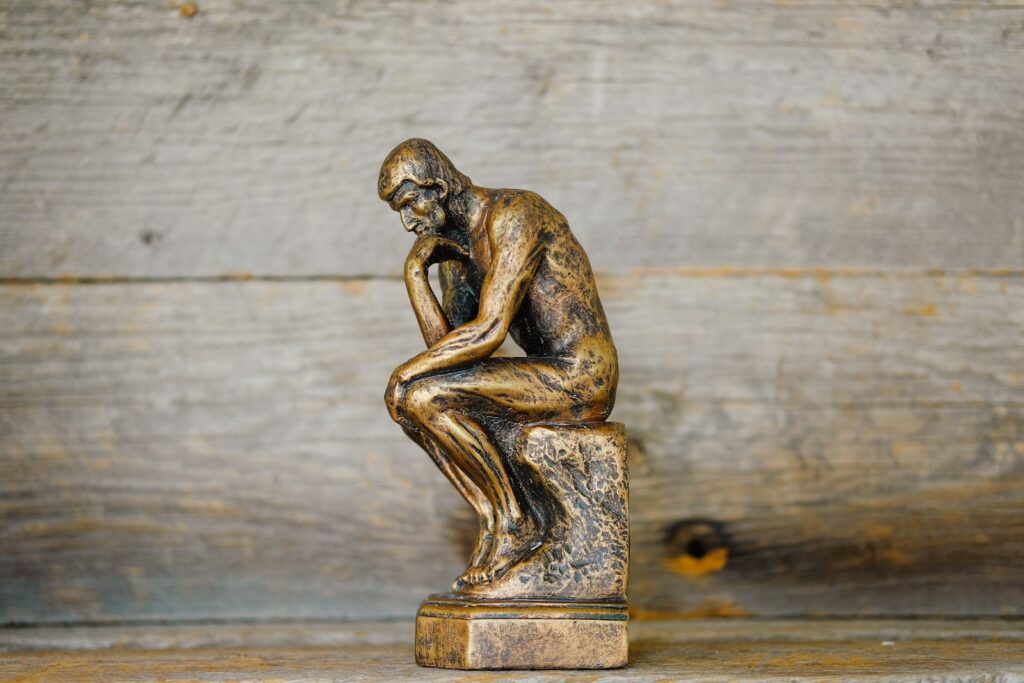The ancient Greek philosopher Socrates would walk the streets of Athens, persistently asking people what concepts like virtue, justice, goodness, and happiness meant. The dialogue would continue until the respondent realized they did not truly know. By employing this method, the philosopher helped “give birth to truth”—genuine knowledge.
But what if Socrates were to ask you what responsibility is – would you know how to answer?
We usually hear the word responsibility when we notice its absence in a specific situation. It makes us pause when others remind us of it, or when we expect it from them. These situations are abundant: voters demand responsibility from politicians; employees and employers expect it from each other, as do teachers and students, parents and children, neighbors, and even strangers passing one another on the street- in short, anyone who encounters another person in any kind of relationship, brief or lasting. We know what happens when responsibility is lacking: trust is lost, goals remain unachieved, plans collapse, and a sense of despair takes hold. That is when many begin to wonder – what exactly is this mysterious force called responsibility, which permeates every individual and the relationships between people?
If we only begin to talk about responsibility when it is lacking, then perhaps it is like air—something we only notice when it is missing. When a room becomes hard to breathe, we rush to open a window. But what should we do when we sense a lack of responsibility? What is that “window” that could help us begin to understand it?
When a child first crosses the threshold of a school, they are overwhelmed by a flood of subjects. And rightly so – mathematics, the Lithuanian language, and the sciences are all important and necessary. Can you multiply and divide? Can you recite a poem by heart? Did you do your homework? How many points did you score on the test?
Working in a school, these questions echo in classrooms and hallways, landing as messages in email inboxes. On the other hand, the school is full of situations where these questions are overshadowed by another one, increasingly flashing like a red warning light – who is responsible for teaching responsibility?
Though invisible and difficult to define, responsibility is deeply felt when its demand is tossed about like a “hot potato”. Parents look to teachers, and teachers look to parents when a situation arises centered around responsibility. “You are the one who should teach my child responsibility,” says a mother whose first-grade son has been reprimanded for inappropriate behavior at school. “You acted irresponsibly by not doing your homework,” the teacher tells the students. “But you did not remind us to complete those tasks,” the students argue. From the teacher’s perspective, the child comes from a family where a sense of responsibility should be instilled. From the parents’ perspective, the child spends at least six hours at school daily; is that not enough time to learn arithmetic and accountability?
While people look to one another, waiting for someone else to take the first step, definitions found in dictionaries hit the mark like a finger pointing at the essence. Responsibility is an awareness that one must be prepared to answer for the consequences of their actions or behavior before themselves, others, or institutions. Furthermore, being responsible means making decisions and accepting both negative and positive consequences.
The human being is the center of all phenomena. It is the human who acts, thinks, feels, and experiences. All events revolve around a person who is constantly searching. It is not enough for them to merely perceive phenomena – they must understand them. Even if they seem as clear as two times two, we should not avoid the Socratic practice of re-examining them.
So everything lies in the hands of the acting person – one who not only achieves success but also constantly seeks and errs, discovers and loses. Responsibility is a complex, multi-layered concept, revealing new dimensions upon closer inspection. The Socratic interrogation of this everyday word only reinforces the realization that examining, understanding, and putting responsibility into practice is a journey that begins anew each day – a journey that is only possible if one walks it with their own feet.
For Socrates, questioning people ended tragically – he was sentenced to death and had to drink hemlock. It is neither easy nor straightforward to delve into the phenomena that surround us today. But we are not only free and seeking to understand, but also learning. Suppose we do not wish to keep experiencing how unpleasant and painfully palpable a lack of responsibility can be. In that case, we must start with ourselves in every situation and ask ourselves a few questions at the end of each day. What did I do today to act responsibly toward myself, my employer or employee, my teacher or student, my parents, my child, or a stranger on the street? How well did I maintain this ongoing dialogue with responsibility today?
Written by PhD Sigita Sillngaite – expert teacher, Head of Educational Programmes at the Lithuanian Free Market Institute, Chair of the Lithuanian Ethics Teachers Association.



